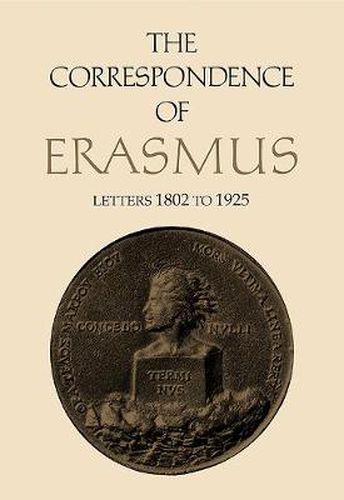Readings Newsletter
Become a Readings Member to make your shopping experience even easier.
Sign in or sign up for free!
You’re not far away from qualifying for FREE standard shipping within Australia
You’ve qualified for FREE standard shipping within Australia
The cart is loading…






The letters in this volume cover Erasmus’ correspondence from March to December 1527. These 129 letters centre primarily on Erasmus’ continuing struggle with his Catholic critics, especially those in Spain and France, and on Erasmus’ growing criticism of the Protestant reform movement. The letters show Erasmus’ attempts to justify his position and to win favour with rulers, other prestigious men, and powerful institutions, all influential in both secular and religious spheres. Although the Inquisition in Spain investigated his orthodoxy and did not bring charges against him, the Paris Faculty of Theology formally condemned 112 propositions drawn from Erasmus’ works in December 1527. The letters in this volume, written by and to Erasmus in this critical time, represent a unique view of a Europe torn by war and breaking apart into religious confessionalism and regionally organized churches. Throughout all this controversy, Erasmus repeatedly protested that the sole aim of his life’s work was to promote the study of humanities for the profit of both knowledge and religion. Volume 13 of the Collected Works of Erasmus series.
$9.00 standard shipping within Australia
FREE standard shipping within Australia for orders over $100.00
Express & International shipping calculated at checkout
The letters in this volume cover Erasmus’ correspondence from March to December 1527. These 129 letters centre primarily on Erasmus’ continuing struggle with his Catholic critics, especially those in Spain and France, and on Erasmus’ growing criticism of the Protestant reform movement. The letters show Erasmus’ attempts to justify his position and to win favour with rulers, other prestigious men, and powerful institutions, all influential in both secular and religious spheres. Although the Inquisition in Spain investigated his orthodoxy and did not bring charges against him, the Paris Faculty of Theology formally condemned 112 propositions drawn from Erasmus’ works in December 1527. The letters in this volume, written by and to Erasmus in this critical time, represent a unique view of a Europe torn by war and breaking apart into religious confessionalism and regionally organized churches. Throughout all this controversy, Erasmus repeatedly protested that the sole aim of his life’s work was to promote the study of humanities for the profit of both knowledge and religion. Volume 13 of the Collected Works of Erasmus series.